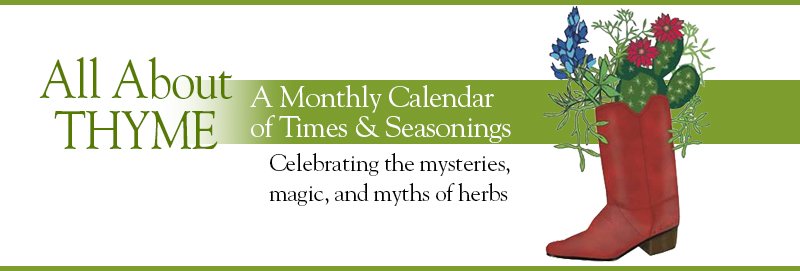Herb of the Year for 2023: Ginger (Zingiber officinale). Named by the International Herb Association
Flower of the Month for November: Chrysanthemum
November is National Sweet Potato Awareness Month
Week 1. National Fig Week
November 7: It’s here! Launch day for Someone Always Nearby, the latest in my Hidden Women series.
November 11: Veterans’ Day in the U.S., Remembrance Day in Canada, Poppy Day in the Commonwealth.
Week 2. World Kindness Week
November 13: Indian Pudding Day
November 15: National Clean Out Your Refrigerator Day. Who knows what mystery lurks at the back of that shelf?
Week 3. National Farm-City Week
November 21: Great American Smokeout.
November 22: Tomorrow is National Eat a Cranberry Day. (Who can stop with just one?)
November 23: Yes, it is—Thanksgiving!
November 19: In England, it’s Stir Up Sunday
Week 4. National Family Week
November 30: John Mason patented the Mason jar on this day in 1858, changing our food preservation habits forever.

The first recipe for mulled wine–wine heated, sweetened, and flavored–appears in 1769, in The Experienced English Housekeeper, by Elizabeth Raffald. Her mulled wine, unlike modern recipes, is spiced only with nutmeg, includes beaten egg yolks, and is to be served in chocolate cups (fine bone china tea cups), and “dry toast cut in long narrow pieces.”
The industrious Mistress Raffald began her career as housekeeper in a large country-house, where she met her future husband, the head gardener. She went on to operate a confectioner’s shop, catering business, and a cooking school for young women. She also wrote the most popular cookbook of her day. It appeared in 13 authorized and 20-some pirated editions and was a favorite of Queen Victoria, who copied recipes from it into her diary. When Raffald sold the copyright in 1773, she was paid the equivalent of nearly a quarter of a million dollars. (This remarkable woman also made time to bear and raise 16 children, all girls!)

Thyme & Seasons Mulling Spice
1 cup dried orange peel
1 cup broken cinnamon sticks
1/2 cup whole allspice berries
1/2 cup whole cloves
3 cardamom pods, slightly crushed
Mix all together and store in a closed jar. To use: mix 1/4 cup of spices to a 750-ml. bottle of red wine (good choices: Cabernet Sauvignon, Merlot, and Zinfandel). In a nonreactive saucepan, bring to a boil, then simmer gently for 30 minutes, or heat in your crockpot. Tasteful additions: lemon, cranberries, raisins, dried cherries. Serve in mugs with cinnamon sticks. A spicy bonus: the delightful aroma that will fill your kitchen.
Check with your local librarian to make sure they’ve ordered Someone Always Nearby. And don’t forget to check the webpage, where you can download the extensive (really!) Reader’s Guide, a behind-the-fiction look at the real story. Free, too.
We know you love sweet potatoes, a traditional accompaniment to the holiday turkey. But you don’t have to smother this versatile vegetable in lots of add-on calories to make it taste good. If you’re cooking light, try these oven-fried sweet potatoes. Or how about sweet potato rolls? Sweet potatoes are loaded with beta-carotene and are a good source of protein, calcium, and vitamins E and A—as well as fiber, of course. They’re an ally in the battle against such chronic health issues as heart disease, cancer, rheumatoid arthritis and asthma.
November 11 marked the end of World War I, and is now the day we honor our servicemen and women. The choice of the red field poppy as a symbol of remembrance was inspired by John McCrea’s World War I poem, which begins: In Flanders Fields, the poppies blow/Between the crosses, row on row. The field poppy is not the opium poppy. Learn about these two related medicinal plants.
November 13 is Indian Pudding Day. Here’s what you need to know about this historic dish, which dates back to Renaissance England. The post includes an interesting bit about the Hasty Pudding Club and an authentic recipe.
Stir-up Sunday? Find out about this traditional British celebration.
National Eat a Cranberry Day. Native Americans applied crushed cranberries to wounds and used them to treat scurvy, a disease caused by a lack of vitamin C. To prevent scurvy, eighteenth-century American whalers and mariners carried a large supply of cranberries on their voyages. More recently, these tart red berries have been shown to prevent urinary tract infections, reduce the risk of kidney stones, and help fight gingivitis. For a peck of great-tasting cranberry recipes, visit the Cape Cod Cranberry Growers page. Our favorite: Cranberry Pecan Streusel Coffee Cake.
For a behind-the-scenes look at the history of Thanksgiving, read this fascinating post by journalist Aimee Levitt: How “culinary propaganda” from a women’s magazine made Thanksgiving a thing
Visit my Substack project, Place & Thyme, where we share our community interests in the green life, books and reading, and the pleasures and challenges of growing older. Subscribe (it’s quick, easy, free), and you can be a part of whatever we’re doing. Love to have you join us there!





